Follow Your Flow
Follow your Flow podcast is hosted by Women’s Health Counsellor/Practitioner & Educator, Sara Harris. Sara brings the topics of menstruation, contraception, pregnancy, fertility and menopause to the fore, having very real conversations with real women and health professionals. This show aims to enlighten topics around being a woman that have otherwise been shrouded in stigma, taboos or even modern hype. Episodes will be released every 2 weeks. If you are a woman interested in understanding your health and life on a deeper level, where being real is a priority for you, then you will love this podcast!
Episodes
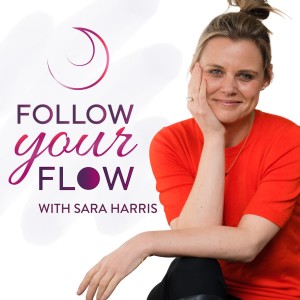
Wednesday May 05, 2021
Wednesday May 05, 2021
It is estimated that period pain affects over 90% of women to varying degrees and so often we think that this is just the way it is – as we discussed in detail back in episode 10 when I interviewed Elodie about her experience with period pain.In this episode, I am talking with Henrietta Chang, a Naturopath from NSW in Australia, where we discuss the impacts of food and lifestyle on how we experience period pain and the impacts are very real. It’s a very practical and important conversation that I know will be of great support to many women, particularly those who think there really is no solution to what they are experiencing month in and month out. This episode just scratches the surface, as there is so much to talk about when it comes to our relationship with food, but it is a necessary surface to scratch to start questioning our behaviours and how every choice we make affects us in some way. Henrietta and I will have much more to share on this in coming episodes. But for now, let’s get clear on the science about why and how certain food groups can increase our experience of period pain.Henrietta has been a naturopath and complimentary medicine practitioner since 2001 and has a background in science with a keen interest in nutritional biochemistry. She combines her considerable knowledge and experience with an unwavering dedication and deep care for her clients and the wider community. She works closely with conventional medicine and also deeply values all that complementary medicines brings - knowing that a client's best outcomes are often based on a combination of both approaches.Some of the topics we discuss:Give yourself permission to look at all of the options available that both conventional and complementary medicine offerThe difference between period pain and endometriosisAs women, we have normalised pain in relation to our periods. This is passed down from generation to generation.Lack of education in knowing what is actually not normal, in relation to period pain.A lack of talking to each other about our periods, means we carry on without realising that what we may be experiencing may be an issue.Nutrition and supplements do play key roles in supporting our menstrual healthPeriod Pain is the body signalling that we need extra support in this area.Period pain is experience by over 90% of women to varying degrees. This is different to endometriosis which involves the immune system and the whole body.From our experience, changes in diet and lifestyle can often resolve period pain quite quickly. Endometriosis will need more specific support.Nutritional support for period pain (and any chronic pain or inflammatory conditions) –Drink more water, stay very well hydrated.Avoid or minimise sugar as much as possible. Sugar causes inflammation which contributes to period pain. Be aware of sugars in fruits and hidden sugars in refined grains.Increase vegetable intake to support digestion and metabolism of excess oestrogen. Fibre helps populate good bacteria in the gut and digestive tract. Green vegetables are a huge support working as anti-inflammatory.Look at your consumption of gluten and dairy. Both play a huge role in inflammation.Dairy from an animal origin is what we are referring to. They contain lactose (sugar) or the protein. We are more concerned about the protein in regards to period pain and inflammation.Avoiding dairy can have a huge affect on how women experience period pain.Dairy has an affect on the brain in such a way that makes it addictive. It creates a dependant pathway in the body, which says ‘I can’t function without this substance’Dairy is one of the most affective but can be one of the hardest for people to cut out.Dairy alternatives – all variations of nut milk, soy milk, dairy free bettersCalcium from dairy (calcium carbonate) is very difficult for the human body to absorb. Calcium Citrate or plant forms of calcium are readily available and are much easier for the body to absorb. Examples are nuts and seeds, green vegetables, seaweed, tahini, fish, leave the bones in canned salmon.Omega 3 fatty acids – support with the good types of prostaglandins. Certain foods can trigger inflammatory pathways – Prostaglandins 2. And then other foods can trigger the anti-inflammatory pathways – Prostaglandins 2 & 3, our natural pain killers!Gluten also contributes hugely to inflammation.Research has found that, something like 120 illness and diseases significantly reduced simply by eliminating gluten. Why is this not a first line intervention when it comes to treating inflammatory conditions?Gluten has the same affect on the brain as dairy having an addictive impact.Zinc works as an analgesic and anti-inflammatory. Often is depleted in so many people.Start with Gluten and Dairy free diet and see how this impacts you.Henrietta recommends a personalised baseline diet that you can always come back to as a foundation when things go wrong. When we deviate we feel the impact of this and have much more clarity and motivation to come back to what truly supports us. More from Henrietta and all that she offers:L’Alchimiste – Natural Medicine Clinic & ApothecaryBased in Ballina, NSW Australia. Also offering online consults, so you can access Henrietta wherever you are!SHOW NOTES: https://www.followyourflow.com.au/podcastINSTAGRAM: https://www.instagram.com/_followyourflow_/FACEBOOK: https://www.facebook.com/FollowYourFlowForeverWORK WITH SARA: https://www.followyourflow.com.au/work-with-saraIMPORTANT: The information in these podcasts is of a general nature for educational and informational purposes only. It is not intended to be used to diagnose, treat, cure or prevent any disease or illness or address any health concern you may have, and it may not be suited to your personal circumstances. It is in no way to be used as a substitute for or alternative to the advice of a registered medical or health care professional. By engaging with this material and any other material distributed by Follow your Flow, you are acknowledging that you are solely responsible for any decisions you make regarding your health, you will not rely on any information presented by Follow your Flow in making health decisions, and that you have consulted with a registered medical practitioner on your particular circumstances, conditions and goals and will continue to do so. If you do not agree with this statement, you should not listen to or use the podcasts on this site or use any other information provided by Follow your Flow.
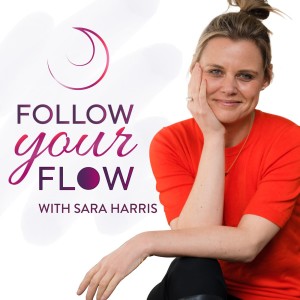
Wednesday Apr 21, 2021
Wednesday Apr 21, 2021
Do you have a relationship with your cycle? And what does this even mean? How do we do have a relationship with our cycle. In this episode I am so excited to welcome Bianca Barban to the show, where we delve right in to our personal experience on this topic. Bianca and I own a business together and we have this incredible relationship where, from the very beginning, we have been all about growing and supporting ourselves, growing and supporting each other and then growing and supporting others - this really is the purpose of our business. Our relationship is such that, we are very real with each other and very open. We talk about all sorts of things that happen in the body and the menstrual cycle is always a hot topic. It's a super fun episode, we seriously can't help but have fun together. Listening back to it, I don't think I stopped smiling the entire way through.Bianca is exquisitely wise and a living example of a woman who knows who she is and does not back down from this no matter what may come her way. I know you will find her as inspiring as I do.Having a relationship with your cycle is absolutely essential for your health. Not only to understand your health and your body but to enrich your life on every level. It is so worth it!If having a relationship with your cycle is something you would like to explore, you can check out the Follow Your Flow website for lots of resources to support with this. I have a free ebook on an introductory to fertility awareness, heaps of blog posts on this topic - and I also offer the Stillness & Cycles Program that has grown to be hugely popular because of the incredible practical support it offers us as women. Head over to the website to put your name down on the wait list for the next program.Some of the topics we discuss:Introducing Bianca Barban and Living StillnessOur cycles support us by showing us that everything is related and nothing is separate.Listening to what the cycle and the body is communicating.We are taught to over-ride the natural ebb and flow and how our bodies naturally operate.Cyclical living is very natural for both men and women.When we commit to making this part of our lives, the body responds.Circadian Rhythm and the Pineal gland.We are taught the lineal projection rather than understanding cyclesSelf-care & listening to your body is foundationalWe are always learning from our body - we are students of our own bodies.Not listening to our body is exhausting. We have to use a lot of effort to ignore what our body is communicating.The body is here to support us, if we get out of the way.Having a relationship with our body starts right back at the beginning to the ways we are taught to refer to parts of our bodies and how we refer to periods.The messages we get from such a young age about what it is to be a woman. We are told that the only purpose of our body is to make babies.Cycle syncing - bringing an understanding to how personal this is.How does our relationship with our cycle affect those around us? Particularly boys and men."Being in a flow is the love of my life' - Bianca BarbanMore from Bianca and all that she offers:Living StillnessBianca BarbanWant to build a relationship with your cycle?Stillness & Cycles ProgramWork with SaraSHOW NOTES: https://www.followyourflow.com.au/podcastINSTAGRAM: https://www.instagram.com/_followyourflow_/FACEBOOK: https://www.facebook.com/FollowYourFlowForeverPlease note: The information in these podcasts is of a general nature for educational and informational purposes. It is not intended to be used to diagnose, treat, cure or prevent any disease, health concern, or illness and cannot substitute for the advice of a medical or health care professional. By engaging with this material and any other material distributed by Follow your Flow, you are acknowledging that you are solely responsible for any decisions you make regarding your health.
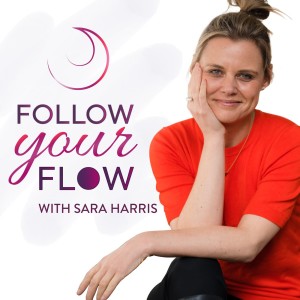
Wednesday Feb 10, 2021
Wednesday Feb 10, 2021
Unfortunately, young people today are getting their education on sex in places that do not offer a wholesome and supportive understanding on this topic. With access to phones, internet and readily available porn – so many young people are completely disconnected from their own bodies…and to a point where they are using outside forces to inform them of how to be in relationships. In this interview I speak with gender expert and social educator Rachel Andras, who beautifully outlines what is in fact missing from sex-ed and what is needed to support young people to come back to using their own inner-compass to navigate relationships and sex - and to set standards based on knowing the love that is within their own body. Rachel makes all of this very real which is very refreshing and very much needed on a topic that so many feel completely lost with.Rachel is the co-founder and director of the INDERA Foundation and heads up the INDERA – Gender Consultancy as a co-director. She is an entrepreneurial, dedicated, client-oriented Gender and Educational professional with more than 20 years of professional experience gained across International Cooperation, Gender Equality and Education, with diverse stakeholders across Europe, Latin, and Central America. She focuses on empowerment strategies introducing body awareness and “self-care” as an essential category of value-creation specifically in the area of reproductive and sexual health and gender-based violence. Working with youth she focuses on the “normalization of violence” and the impact normalized abuse has on young people and their understanding of gender equality, empowerment and well-being.Some of the topics we discuss:What is abuse and what is violence? We tend to only look at the extremes…but what is the whole picture and what is fostering that we can reach these extremes?There is a gap between learning something and then actually living it. We know how to function in life but there is something missing.Sex education has to be about your relationship you have with your body.We have very little that focuses on how do you feel – that we are feeling beings.If our feelings and awareness is not nurtured then we develop a lot of coping mechanisms and we crave love and connection. We find a lot of replacements e.g., pornOur ideals and beliefs make us feel empty and we are constantly looking for something to fill us up.We need to be asking young people – how can you connect to your body and your inner-world and build a relationship with this.Romantic love – is this what we should be striving for?How do changes in your breath inform you about your connection?“Our bodies are a massive resource of information and supports us on how to be in life to keep us on the front foot rather than being a victim”Sex education starts in kindergarten because it is about having a relationship with your body.Detecting abusive behaviour is hard to do if we are abusive and critical with ourselves.In society we ignore the massive power source in our body that is not recognised. If we grow up without our inner compass being nurtured then we go by what the world is telling us.We need to support children to activate this power source so that life becomes much more simple.If you go against the grain and the expectation of society then you are ostracised. The pressure to join in is huge. Young people need a lot of support with this – to learn how to be with your own body.As parents we can ask our children questions to support them – ‘how does it feel when a boy touches your hand?’ ‘how do you feel being with them’ ‘do you really like them’ ‘how does it feel when he/she kisses you’ etcWhen boys enter puberty they are basically obliged to let go of their sensitivity. Boys are extremely sexualised.Be open with the young people in your lives, share with them and be vulnerable. Being honest about our own experiences can support them. We do not need to be perfect and or the master of this topic because the truth is, we probably aren’t.The importance of the female cycle and understanding that it is a vital part of wellbeing and having a healthy relationship with your body.More from Rachel:https://www.fundacion-indera.orgCYCLE WISE PARENTShttps://www.followyourflow.com.au/cycle-wise-parents-courseSHOW NOTES: https://www.followyourflow.com.au/podcastINSTAGRAM: https://www.instagram.com/_followyourflow_/FACEBOOK: https://www.facebook.com/FollowYourFlowForeverPlease note: The information in these podcasts is of a general nature for educational and informational purposes. It is not intended to be used to diagnose, treat, cure or prevent any disease, health concern, or illness and cannot substitute for the advice of a medical or health care professional. By engaging with this material and any other material distributed by Follow your Flow, you are acknowledging that you are solely responsible for any decisions you make regarding your health.
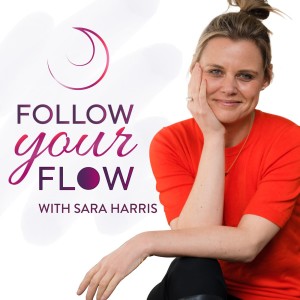
Wednesday Jan 27, 2021
Wednesday Jan 27, 2021
In this episode I am talking about stress – what is stress and how does it affect our menstrual cycle. Listen in to the episode to hear my expanded view on what stress actually is because I believe that we are living in much more constant stress than we realise. I mean, any time we are not living who we truly are, not honouring how we feel, over-riding what we naturally sense in life and about life and anytime we simply don’t listen to the communication from our body – this is a stressful situation for our body. We may be so used to it that we don’t even realise that this has become our normal.So I broaden our view on stress, talk about how it affects the delicate communication between our hormones and how this then gives us the symptoms in our menstrual cycle that we tend not to like very much, like PMS or period pain or heavy bleeding to name a few.One thing I wanted to point out is that I mention how stress can delay ovulation – well in truth, this is not the case. Ovulation will always be on time. ALWAYS. Because your body is simply responding to the quality that your body is in. It is doing exactly what is being called for according to how you are living and it is communicating that to you. Like I always say, we are not at the mercy of our hormones, they are at the mercy of us.These are the topics I discuss in this episode -What is stress and how does it affect your cycle?What is stressful for one person may not be stressful for another, however there is a biological response that is the same for everyone.Cortisol levels are a typical way of measuring stress in our body.Fight of Flight response and the sympathetic nervous systemRest and digest response is our parasympathetic nervous systemMany of us are in the fight or flight mode more often than is needed. Our body thinks we are needing to survive.The menstrual cycle is one of the first casualties of constant stressStress can result in PMS, Irregular periods, heavy periods, acne, absent periods.What is stress? Is it more than we realise?Have we accepted low-grade of stress (or even high-grade stress) as normal?From young we learn to live according to want the outside world wants us to be rather than from the inside-out.Lack of self-worth, not feeling enough and being critical with ourselves is a stress on our body.How does stress affect our menstrual cycle?We can see the effects of stress on ovulation by checking our cervical mucus and basal body temperatureOvulation may be delayed and cycles may be long or absent. None of this means there is anything wrong with your body. Ovulation is in fact on time and not delayed because your body is simply responding to the quality that your body is in. It is doing exactly what is being called for according to how you are living and it is communicating that to you.Stress effects our hormones and the production of oestrogen and progesterone.Our behaviours that result from stress, can compound the effect of stress on our menstrual cycle. I give an example of my choice to indulge in dairy products which exacerbated my period pain.Effect of stress on progesterone – supports us with stress; calms us and supports sleep; soothes mood.Stress increases inflammation and decreases immune system. Progesterone decreases inflammation and supports the immune system. Yet stress also reduces progesterone. So, it is a viscous cycle!We need a marker of what normal actually is…because a lot of the time, our normal is our body under stress. This is the power of the Stillness and Cycles Program, to support women to get a sense of what their true normal actually is and then how to adjust life to live closer to this marker, rather than to a marker of stress that they may not have even realized they were living by.Sleep is super important. It is not just about shutting down the body. It is about having a rejuvenated and restorative rest to support our body.Our circadian rhythm is governed by our pineal gland, which governs the rhythms in our body including our menstrual cycle.SHOW NOTES: https://www.followyourflow.com.au/podcastINSTAGRAM: https://www.instagram.com/_followyourflow_/FACEBOOK: https://www.facebook.com/FollowYourFlowForeverPlease note: The information in these podcasts is of a general nature for educational and informational purposes. It is not intended to be used to diagnose, treat, cure or prevent any disease, health concern, or illness and cannot substitute for the advice of a medical or health care professional. By engaging with this material and any other material distributed by Follow your Flow, you are acknowledging that you are solely responsible for any decisions you make regarding your health.
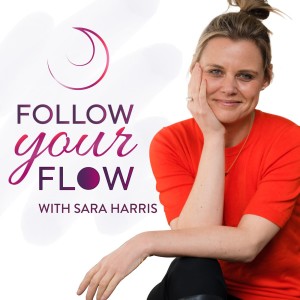
Wednesday Jan 13, 2021
Wednesday Jan 13, 2021
When it comes to treatment for period pain, many women feel at a loss. The only option that seems to be offered is the pill or other drugs/devices that can interfere with how a woman feels within herself. I know these options are super supportive for some women where they do need a reprieve from what they are experiencing, however, most women think it really is their only option. In this episode I am talking with Elodie, who shares her personal experience with severe period pain and how the lifestyle changes she made supported her enormously. Rather than being at the mercy of what was happening to her, she was supported to bring awareness and understanding to her body and from there she made self-care choices that made a huge difference. As you'll hear from Elodie, these changes were not simply revolving around diet and sleep for example but also had very much to do with her relationship with herself, how she felt about herself, about her worth and the degree to which is would give herself a hard time throughout the month...or not. I love this episode because it is very real and super relatable, as is the nature of Elodie.We recorded this episode some months ago in the midst of Covid in 2020. Here are the main points that we cover in our conversation:Elodie talks about her simple, healthy life. What does this look like? Is it really boring?Having a relationship with yourself - how this effects the experience of your cycle.Lifestyle changes and the impact this has on the experience of period pain.Stress, overwhelm and anxiety - period stopped for 6 months. Very high functioning but body was completely shot.The history of Elodie's period pain originally diagnosed with dysmenorrhea and prescribed the pillInstilled beliefs that period pain is normal and just part of being a woman.Prostaglandins role in inflammatory responses. Increase in prostaglandins are linked to increase in pain.Lifestyle factors that increase inflammation in the body - stress, diet (particularly dairy), quality of sleepAfter the pill, pain came back with a vengeance, worsening every month.Care and awareness of body - more sensitive and able to see more clearly what was exacerbating the pain.Support from practitioners under the Esoteric Women's Health umbrella to see that she actually had a body and that it needed to be cared for and connected to.Rather than seeing pain as a punishment, seeing it as a communication from the body.Lack of self-worth and self-bashing is like a poison in the body that has to be cleared.Being empowered by understanding that we have a part to play in the treatment of period pain.Period Pain is common but it is not normal. Seek supportive medical attention and explore avenues such as counselling to bring a deeper understanding of your body to bring greater levels of self-care.Self-care has a huge part to play in period pain treatment.Remember that you are the master of your own body. Do not give your power away to your medical practitioner. be open to their support but if you don't feel heard in regards to what is happening in your body, be persistent and/or find another doctor. Where to find Elodie:As mentioned Elodie makes stunning jewellery that you will want to check out!Website: https://www.elodie.com.au/Instagram: @elodiejewelleryFacebook: @elodiejewlleryRelated Blogs:10 Period MythsUnderstanding Period PainPeriod Pain: What is your body really trying to tell you?SHOW NOTES: https://www.followyourflow.com.au/podcastINSTAGRAM: https://www.instagram.com/_followyourflow_/FACEBOOK: https://www.facebook.com/FollowYourFlowForeverPlease note: The information in these podcasts is of a general nature for educational and informational purposes. It is not intended to be used to diagnose, treat, cure or prevent any disease, health concern, or illness and cannot substitute for the advice of a medical or health care professional. By engaging with this material and any other material distributed by Follow your Flow, you are acknowledging that you are solely responsible for any decisions you make regarding your health.
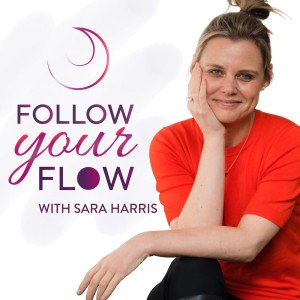
Wednesday Dec 30, 2020
Wednesday Dec 30, 2020
In this episode I'm going to talk you through your 3 main fertile signs - something every woman should know about! Unfortunately we are not taught this as part of health education in a way that should really form the basic basis of our understanding and knowledge of our menstrual cycle. If you're wanting to understand the incredible intricacies of your body, this episode is for you. Whether it's for the means of conception, contraception or wanting to connect more with your body, you will only gain from knowing your body in this way. Topics I discuss in this episode:Your 3 main fertile signs are:- indications/communication from your body- communicating when you ovulate- not commonly known by most women - even though it's happening to us month in and month outWhy is it important?Common reasons why women start to find out about when ovulation is...and then consequently, the Fertility Awareness Method are:to have a babyfor contraceptionto understand your body Whatever your reason, knowing when you ovulate is absolutely essential. Benefits of Fertility Awareness and knowing when you ovulate:achieving pregnancy effectively avoiding pregnancygetting insight in to your healthgaining a deeper connection to your bodyHad I known about Fertility Awareness I may have made different choices re contraception when I was younger.Your awareness of these 3 fertile signs is invaluable and supports in so many ways:I have avoided further invasive investigations because I knew when I had ovulated - could pass this on to specialistThere are countless stories of women avoiding unnecessary treatments because of their knowledge. So what are the 3 main signs?!#1 - Cervical Mucus#2 - Basal Body Temperature#3 - Cervical PositionThere is much more detail involved when wanting to use Fertility Awareness as a method but this give you an introduction in to your 3 main fertile signs - or what we could also say are the 3 main signs of ovulation. FREE eBook:As mentioned in this episode, 'Ovulation - your introductory guide to fertility awareness & knowing when you ovulate' is available now for FREE on the website for you to download - for a limited time (at the time of recording this).CYCLE WISE WOMAN:And check out the website for the upcoming course 8 week course, formalising what I have been doing with women for many years. 'Cycle Wise Woman' is for you if you are interested in getting to know your cycle and the principles of FAM, putting it into practice and using it as a method of contraception, to achieve pregnancy and/or to simply know your body much more intimately. We could all do with more of this! Related Blogs:What is Fertility Awareness? with Dr Kerry HamptonFertility Awareness: The Fascination of OvulationPlease note: The information in these podcasts is of a general nature for educational and informational purposes. It is not intended to be used to diagnose, treat, cure or prevent any disease, health concern, or illness and cannot substitute for the advice of a medical or health care professional. By engaging with this material and any other material distributed by Follow your Flow, you are acknowledging that you are solely responsible for any decisions you make regarding your health.
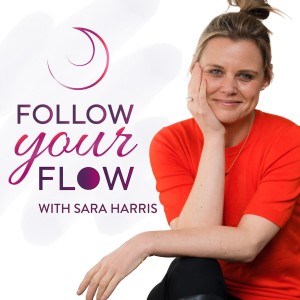
Wednesday Dec 16, 2020
Wednesday Dec 16, 2020
We are heading in a little bit of a different direction this episode to have a look at the topic of pregnancy.Pregnancy is a significant experience in many women's lives and I think most would say that their lives were completely changes as a result. I loved interviewing my guest Rebecca Poole on her experience of pregnancy because she really challenges the 'norm' by being very real and open about where she was at and what she needed. She saw the pressures of society and from those around her and learned to navigate this in a way that deepened her relationship with herself. When parenting came along, she saw the importance of letting in support and getting out of this all-to-common mentality that we are in this on our own and we have to soldier on and just keep going. She blows this to pieces giving us all permission to 'raise the white flag' and ask for help - gosh, how would it be if we allowed ourselves to do this?! This episode is about much more than just pregnancy - it is about life...and the richness of life that we can tap in to if we so choose. And Rebecca, very wisely and very gently gives us a little nudge to encourage us to settle for nothing less.Topics that Rebecca and I cover:Pressures around pregnancy from society and those around youHaving expectations about pregnancy and how this can affect youDo we focus to much on the birth rather than appreciating the stages of pregnancy?There is a richness in pregnancy, an offering to deepen your connection with yourselfAs women, what we offer our children and families - the 'inner pulse' - insight and wisdom1st Trimester - we are being asked to shed anything that is no longer supportive for us in this next phase. And to accept a deeper quality within yourself.Our body is always communicating - listen to the nausea and other symptomsFeeling resentment during and after pregnancy - being honest about this and not judging yourselfSociety doesn't fully support us. We think we have to do it all alone in isolation. And if we need help that it is a failure.It's ok to put up the white flag!Opening up to community around you for support.Rebecca's experience of letting others in to support in the raising of her childrenThe harms of comparison. Our experience of pregnancy is very personal.The importance of not over-riding what we feel.Where to find Rebecca:www.healthhealinglife.comRebecca's FREE 2-day Re-boot Program - a great 2 day program to support you to start to recognise and feel what feels true for you and what doesn’t.SHOW NOTES: https://www.followyourflow.com.au/podcastINSTAGRAM: https://www.instagram.com/_followyourflow_/FACEBOOK: https://www.facebook.com/FollowYourFlowForeverPlease note: The information in these podcasts is of a general nature for educational and informational purposes. It is not intended to be used to diagnose, treat, cure or prevent any disease, health concern, or illness and cannot substitute for the advice of a medical or health care professional. By engaging with this material and any other material distributed by Follow your Flow, you are acknowledging that you are solely responsible for any decisions you make regarding your health.
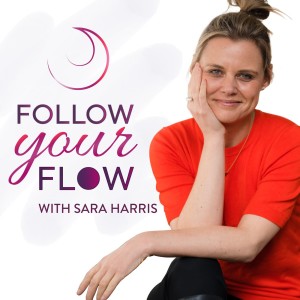
Wednesday Dec 02, 2020
Wednesday Dec 02, 2020
An epic interview with author of 'In the Name of The Pill' Mike Gaskins, on all things hormonal birth control. Such important information for us all, women and men, to know and understand.Topics that Mike & I discuss in this episode:Introducing Mike Gaskins, author of 'In the Name of the Pill'How Mike became a women's health advocate - very interesting story!Is contraception just a women's issue?Men need to be having conversations about hormonal birth control tooWomen need to demand more from their health-care & be informedWe have normalised The Pill so much that it is not even perceived as a medication by many womenThe Nelson Pill Hearings - a landmark event in the history of The Pill - 1970Has The Pill ever been proven safe?Benefit to Risk paradigm - how this changed in relation to The PillPopulation growth and the link with The PillOriginal Puerto Rico Trials that were submitted to the FDA - what were the results and what were the inadequacies?How did The Pill get approved?Bayer settlements as a result of The PillAre Doctor's being educated on the full impact of the pill and other hormonal contraceptives?Is a woman's health even a concern when it comes to the pill?What are the health risks of taking the pill?Further impacts of the pill including environmentallyEnjoy this epic episode with Mike...and as always, I'd love to hear your thoughts and any episode suggestions you have, simply send me an email and let me know.SHOW NOTES: https://www.followyourflow.com.au/podcastINSTAGRAM: https://www.instagram.com/_followyourflow_/FACEBOOK: https://www.facebook.com/FollowYourFlowForeverPlease note: The information in these podcasts is of a general nature for educational and informational purposes. It is not intended to be used to diagnose, treat, cure or prevent any disease, health concern, or illness and cannot substitute for the advice of a medical or health care professional. By engaging with this material and any other material distributed by Follow your Flow, you are acknowledging that you are solely responsible for any decisions you make regarding your health.
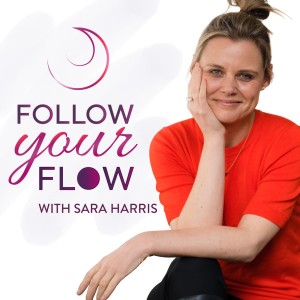
Wednesday Nov 18, 2020
Wednesday Nov 18, 2020
Depo Provera is a slow release hormonal medication administered by injection that suppresses a woman's menstrual cycle for 3 months at a time.My interview with Dr Rachel Mascord, gives us a very personal account of her experience with this drug and what transpired as a result. Her inspiring story includes her renewed relationship with her menstrual cycle and with herself as a woman.As I've said many times, I'm not necessarily anti-hormonal contraception completely...but I am definitely pro-being fully informed. And I do firmly believe that IF we were fully informed about the drugs themselves, how they work, their impacts on the body and potential harmful effects AS WELL as being educated on our cycles and reproductive health overall, then there would be far fewer women taking these drugs as a result.I believe these conversations are super important to inspire women to have a relationship with their bodies in a way that deeply supports them - perhaps more than they had ever considered it could.Topics we discuss:Rachel explains what Depo Provera isWhat prompted Rachel to have the shotSide-effects that Rachel experiencedThe fear that she experienced as a result of taking the shotGiving your power away to the medical systemThe trivialisation of symptoms that women experienceWomen giving up on themselves or even questioning themselves in the face of medical authorityLooking at the root cause of what we are feeling instead of just managing it allExamining life from our bodies rather than our headsSelf-care and the difference this makes in a woman's healthAppreciation of the female bodyHaving a relationship with our cycle and why this is so importantSHOW NOTES: https://www.followyourflow.com.au/podcastINSTAGRAM: https://www.instagram.com/_followyourflow_/FACEBOOK: https://www.facebook.com/FollowYourFlowForeverPlease note: The information in these podcasts is of a general nature for educational and informational purposes. It is not intended to be used to diagnose, treat, cure or prevent any disease, health concern, or illness and cannot substitute for the advice of a medical or health care professional. By engaging with this material and any other material distributed by Follow your Flow, you are acknowledging that you are solely responsible for any decisions you make regarding your health.
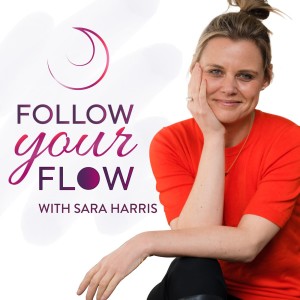
Wednesday Nov 04, 2020
Wednesday Nov 04, 2020
So what is PMDD? It stands for Pre-Menstrual Dysphoric Disorder and it affects between 2 - 10% of women. The pathogenesis is not fully understood but it is often referred to as a more severe form of PMS. We do know that PMDD is not so much about an hormonal imbalance but rather a sensitivity to the fluctuation of the hormones throughout the cycle. The main indicator of PMDD is that the symptoms occur after ovulation and before the period, so whilst there are often symptoms of mental instability, it should not be confused with something like bipolar. If this important point is not recognised by your health professional, there is the risk of being prescribed anti-psychotic drugs unnecessarily.The symptoms of PMDD can include:Feeling sad, depressed and even thoughts of suicideFeeling tension & anxietyPanic attacksIrritability and angerTrouble focusingTired and low energyFeeling out of controlBreast sorenessBloatingHeadachesThe symptoms are generally quite disruptive and are often associated with much distress, impacting the woman's quality of life. If a woman presented with at least 5 of these symptoms, she may be diagnosed with PMDD.In this episode I interview Eleanor Cooper, a 41 year old woman from the UK. Eleanor had a Women's Health Counselling session with me recently and naturally, we were talking about her cycle and the history of her experience with it. PMDD became the topic of conversation and the way she found her way through it is very inspiring and is the same approach I take when working with women experiencing these or similar symptoms with their menstrual cycle.Here are some of the main points shared by Eleanor in this episode:Her experience of her cycle growing up and how she thought it was normal because this is what all the women in her family also experiencedHere symptoms were clearly between ovulation and the start of menstruation, meaning she was hanging out to get her period every month so that the symptoms of fatigue, moodiness, anxiety and insomnia would ease.She chose not to take anti depressants and see if she could find another way, which is when she began to slowly change her lifestyle.Changing simple things like going to bed earlier, her diet, not watching as much TV started to shift a lot of what she was experiencing.Esoteric Healing was a huge support for Eleanor helping her to feel more settled in her body and being able to sleep!!!She was able to turn things around so that she was no longer feeling a victim to her body but rather felt empowered and more in control of her body, now feeling more equipped to deal with any challenges that should arise in life.Eleanor offers some fantastic advice for us all in terms of first steps we can take to support ourselves if we are feeling these kinds of symptoms and indeed any symptoms that we would like to address.Enjoy this inspiring episode with Eleanor and all things PMDD.Please note: The information in these podcasts is of a general nature for educational and informational purposes. It is not intended to be used to diagnose, treat, cure or prevent any disease, health concern, or illness and cannot substitute for the advice of a medical or health care professional. By engaging with this material and any other material distributed by Follow your Flow, you are acknowledging that you are solely responsible for any decisions you make regarding your health.


